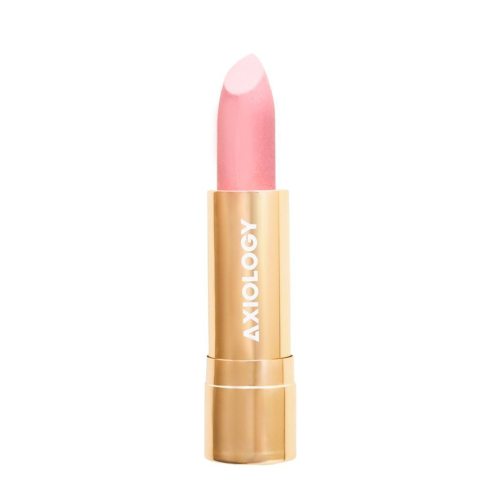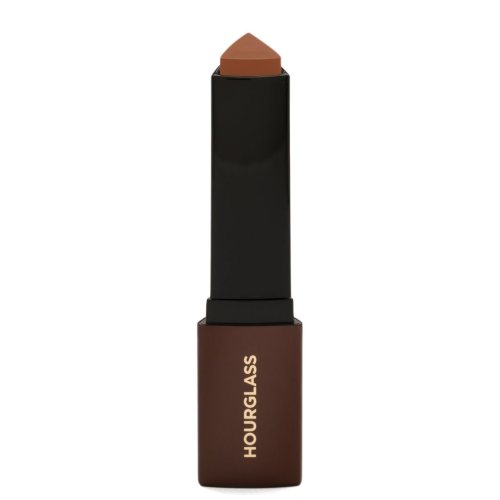Everything You Actually Need to Know About Vegan Beauty
More so than in the food world, vegan beauty is often misinterpreted—particularly when compared to "clean" beauty, which is a totally different thing altogether. In part, this is because there are tons of different beauty distinctions out there from EcoCert to cruelty-free to vegan itself. So to clear up the confusion, here's what the pros want you to know about it.
The 411: What *is* vegan beauty?
Kinda like with food, vegan beauty means that the product has zero animal-based ingredients inside it. "Vegan means that a product does not use animal-derived ingredients, and it should mean that the product has not been tested on animals," says Sarah Villafranco, MD, doctor and founder of Osmia Organics. Examples of these kinds of ingredients (that are not vegan) include beeswax, honey, lanolin, and different types of milk. "Vegan claims should also include the processing of ingredients, which should not involve animal-derived elements," she explains. "Sugar, for example, is sometimes processed using charred bone, which would render the ingredient non-vegan." Michelle Connolly, director of merchandising and planning at Credo Beauty, adds that carmine and keratin are other animal-derived ingredients to watch out for.
{{post.sponsorText}}
"When people commit to a true vegan lifestyle, they decide not to consume, wear, or use animal products in any way," explains Dr. Villafranco. "This means they don’t eat honey, wear leather or wool, or use beeswax. For those who choose veganism for ethical or environmental reasons, it’s really important for them to be able to trust the labels on their beauty products."
Why use vegan products?
If you're a vegan, chances are you want to avoid animal products in your beauty routine too. "It all depends on the consumer's ethics," says Dr. Villafranco. This distinction is becoming more and more in demand as education surrounding beauty products grows.
"Customers today are more informed and more empowered, and they're demanding transparency about their products—including information on ingredient sources," says Connolly. "Seeing the word 'vegan' has certain connotations of safety, ethics, or quality of ingredients for customers, whether it's true or not. So even if a customer isn't vegan, they may choose a vegan product over a non-vegan one because they interpret the product as being safer or healthier."
One thing to keep in mind, however, is that the sourcing of certain ingredients is actually pretty important as well. "You could also shop from conscious companies that uphold sourcing standards for their non-vegan ingredients that are more favorable to the animals and ecosystem," says Dr. Villafranco. "Palm oil is vegan, but if it's sourced non-organically from a country with large orangutan populations, it may be more harmful to animals than organic honey or beeswax." A fair point. So, regardless of where you're shopping, it can be smart to take time to know the brands you're buying from to make sure that you know how the cream is being made.
How to know if a product is vegan
As is the case with skin-care and makeup products that claim to be clean or natural, vegan products are not verified by any governing body. "There is no centralized or governmental certification body," says Dr. Villafranco. But typically the product's packaging will tout vegan as one of its stand-out factors. "If a product has a vegan logo, it means that every ingredient in the product is vegan," says Dr. Villafranco. "If even one ingredient is animal-derived, it's not considered vegan."
You can verify that it's truly vegan if you run the product by Vegan.org, she says. "It's one of the most popular certifying organizations, and their requirements for certifying a product are as follows: no animal products, no animal testing of ingredients, and no animal-derived GMOs," says Dr. Villafranco. Plenty of retailers mark products as vegan, too, such as Credo. Brands themselves will mark it on their products as well.
Some brands aren't entirely vegan, but have some products that are (such as Osmia). "In our case, while 35 of our 43 products are vegan, we do use some carefully sourced animal products," says Dr. Villafranco. "Most importantly, we do our homework about all ingredients, vegan or not." Whichever route you choose for your own beauty cabinet, it's just good to be informed. Shop our fave vegan beauty products, below.
Vegan beauty
For a little refresher, here's the difference between natural, clean, vegan, and cruelty-free when it comes to beauty. As for diet, here's the relationship between a vegan diet and your brain health.
Loading More Posts...







